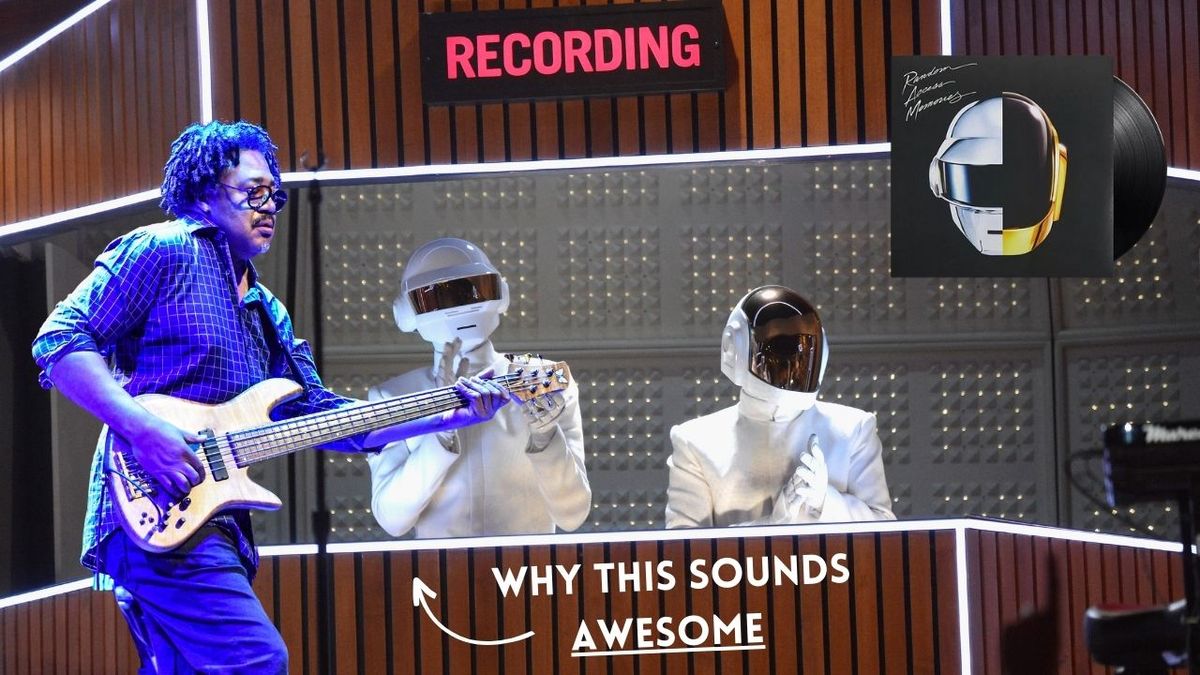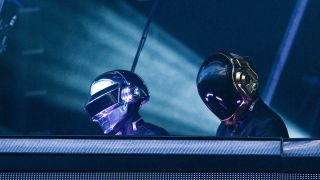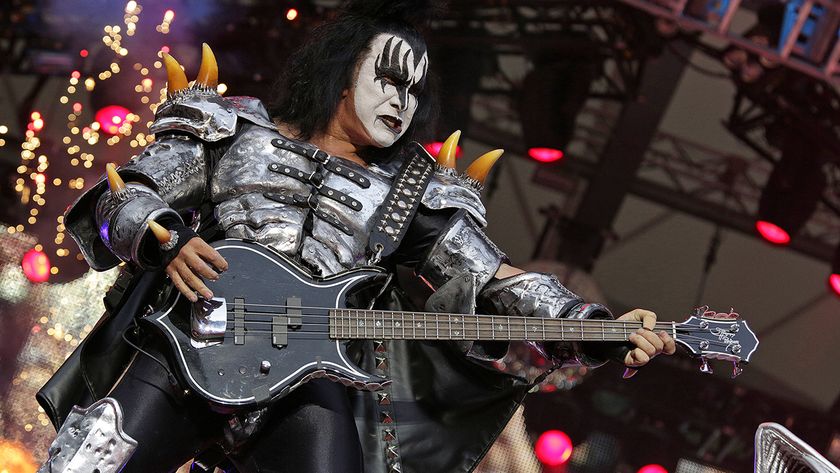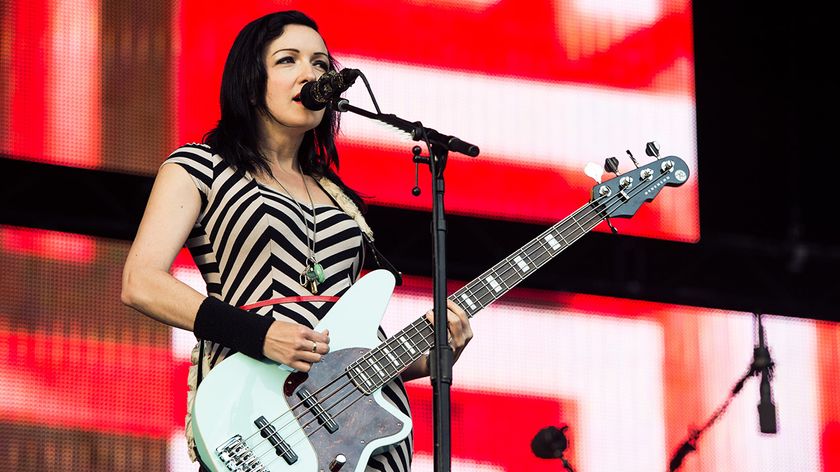“Daft Punk was dancing in the booth while we cut it!” Listen to James Genus stretch out on Giorgio by Moroder from Random Access Memories
While Nathan East played on the chart-topping Get Lucky, James Genus added a fresh spin to Daft Punk’s Grammy-winning album

Daft Punk’s backwards-looking, forwards-leaning 2014 album Random Access Memories shattered all kinds of conventions about songwriting and producing, and man-meets machine. While Nathan East, who appears on more than half of the album, will be remembered for his percolating bassline on the chart-topping Get Lucky, New York-based session ace James Genus made his own contributions to the album, including the nine minute Giorgio By Moroder.
Keyboardist Chris Caswell, who had worked with Daft Punk in the past, recommended Genus and drummer Omar Hakim (as well as Nathan East and drummer J.R. Robinson, for an East Coast/West Coast flavor), and in May 2012 they setup at Conway Recording Studios in Los Angeles, with Daft Punk behind the board. James Genus – on headphones – sent his signature Fodera 5-string (strung with month-old La Bella roundwound strings) direct.
“They had us jam on it for about ten minutes,” Genus told BP back in 2014. “They gave us the general vibe they wanted, and the changes to a 16-bar phrase, and then they put together the song using various sections from that jam. I didn’t think they would use all of it on a pop dance song – especially the end, where we took it pretty far out. Nowadays, artists find the four or eight bars they like and pretty much run with that. You don’t think most of your bass guitar part is going to be used. I was shocked when I heard it all on there!”
The track begins with autobiographical narration by legendary producer Giorgio Moroder, as the band, mixed lower, plays through the changes. “The key was to be in the moment: be aware of the groove and the tonality of the changes. Feel-wise, I tried to be right in the middle – but especially toward the end, we’re pushing it. Daft Punk was dancing in the booth while we cut it.”
The narration continues with the band now front-and-centre in the mix. Genus plays an octave-style pattern that was either developed while jamming or presented as a basic shape by the duo. “There was a sense of building our parts as we went along, so we started more simply and developed from there, giving them different approaches and increased intensity. I tried to channel the era and the vibe they were channeling, while adding a fresh spin and my own style.”

When the narration stops a sequenced keyboard loop takes the lead. Genus plays a similar figure without the octaves for the first 16 bars before returning to the octaves for the next 32 measures (where strings enter). Caswell then begins his Rhodes solo. Genus responds with rhythmic variations and the use of the 7th of the Am and Em chords, ultimately adding tenths in the climb from the Dm, culminating in the harmonic chord in the last two measures.
When the keyboard loop finally stops, Caswell’s jazzy Rhodes solo – for which Genus switches to thumb-and-palm-mute – settles into a samba feel, and ends with a cool fill over the Em chord. “We may have done this section over, after they liked it from the original jam; I remember doing a few passes of the solo.”
Get The Pick Newsletter
All the latest guitar news, interviews, lessons, reviews, deals and more, direct to your inbox!

The track then breaks down as Moroder’s narration returns, which gives way to the keyboard loop and the strings, with Omar Hakim letting loose on the drums (Genus and Hakim have played together since the early ‘90s). Genus follows. Of note is his steady-16ths start (“I was just trying to rock out!"); his use of the open E to bounce off, and an audacious Em fill. Finally, everything comes back in, plus Paul Jackson Jr.’s guitar solo, for a full-on finish.
Genus cited Motherboard as his other favourite contribution to the album. “I came up with this four-bar muted phrase that they had the guitar player copy, and then I played different variations of it.”
Chris Jisi was Contributing Editor, Senior Contributing Editor, and Editor In Chief on Bass Player 1989-2018. He is the author of Brave New Bass, a compilation of interviews with bass players like Marcus Miller, Flea, Will Lee, Tony Levin, Jeff Berlin, Les Claypool and more, and The Fretless Bass, with insight from over 25 masters including Tony Levin, Marcus Miller, Gary Willis, Richard Bona, Jimmy Haslip, and Percy Jones.

“You can set up amplifiers and drums to your heart’s content”: Gene Simmons defends paid roadie scheme

“I woke up to a DM from Shirley Manson asking if I'd be interested in the gig. We had never met”: Former Smashing Pumpkins bassist Nicole Fiorentino on how she landed her role in Garbage – with no audition










